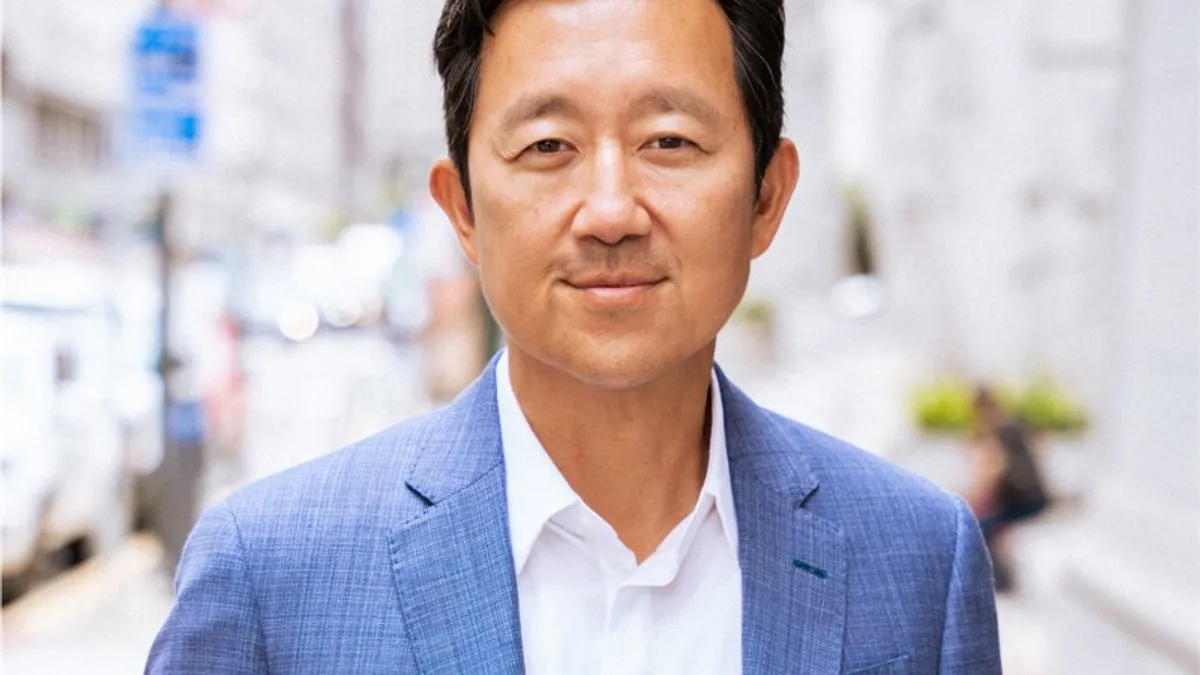Dive Brief:
- Card network behemoth Visa said it has tapped Chris Suh to be its next chief financial officer, replacing Vasant Prabhu, a 23-year veteran of the company who is exiting Sept. 30, according to a press release from the company Tuesday.
- Suh most recently served in the same role at the gaming company Electronic Arts for a little over a year, and prior to that, he held various finance leadership roles at tech titan Microsoft for nearly 26 years, according to his LinkedIn profile. He will act as Visa’s CFO designate from July 10 to Aug. 1, assuming full responsibility on that day, two months before his predecessor leaves, the San Francisco-based company said.
- “His deep experience in finance and technology, plus his leadership in growing and scaling businesses, will be extraordinarily valuable to us as we continue to drive growth and better serve our clients around the world,” Visa CEO Ryan McInerney said of Suh.
Dive Insight:
Suh, 52, will be paid a salary of $900,000 and be eligible for an annual bonus of between $1.58 million and $3.15 million, according to a filing Visa made with the Securities and Exchange Commission regarding the new hire. He will also receive a one-time $3 million cash award at his hiring to compensate him for bonus payments he’ll forfeit by leaving his current employer.
In addition, Suh will receive an initial $9 million long-term award in November, plus another $11 million in restricted stock as a one-time award, partly to compensate him for “unvested equity and other incentives he will forfeit when he departs his current employer.”
“Mr. Suh will report directly to Ryan McInerney, Visa’s Chief Executive Officer, and be responsible for Visa’s financial strategies, planning, and reporting, in addition to all finance operations and investor relations,” the 8-K filing said.
The appointment of a new CFO, which Visa presaged in a February announcement, follows the elevation of a new CEO. McInerney stepped into the top post in February, after being appointed last year, and quickly began assembling his own team. He succeeded Al Kelly, who had held the CEO title for about seven years.
The Visa management changes come as the global card network company adjusts its strategy to an increasingly digital payments environment and responds to continuing pressures from regulators and lawmakers, including the reintroduction this month in Congress of a new Credit Card Competition Act.
The company will also pivot next month to adhere to a Federal Reserve edict that requires merchants have access to multiple networks for processing debit cards, even for card-not-present transactions.
Meanwhile, Visa is chasing a host of opportunities across different payment fronts, including increasing its bid to satisfy customer demand for cross-border and business-to-business services.
Suh’s recent experience at Electronic Arts in the gaming sphere may assist Visa in developing its presence in that ecosystem, which is fast becoming a major play for payments providers. His many years at Microsoft is also likely to be a benefit in light of the blending of the payments and technology industries over the past decade as payments increasingly take a digital form and tech companies infiltrate the payments sphere.
Having experience at a global company will also come in handy. Visa is targeting worldwide expansion under McInerney’s leadership, given the CEO’s experience building the company’s presence around the world. The rise of Visa’s interest in Africa is just one example of his global ambitions.















